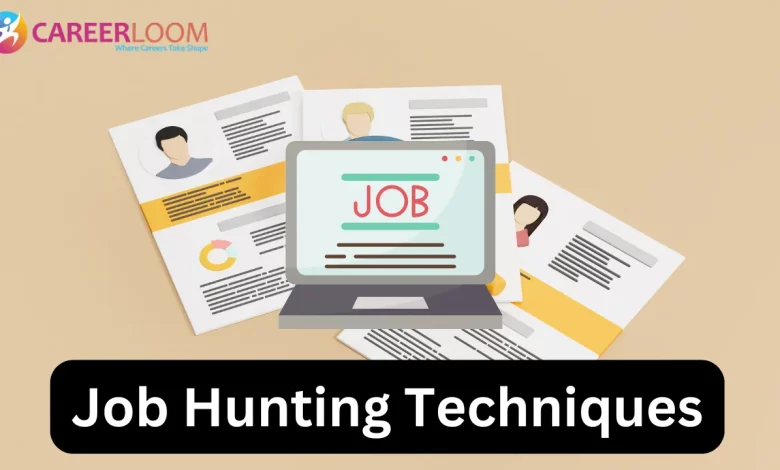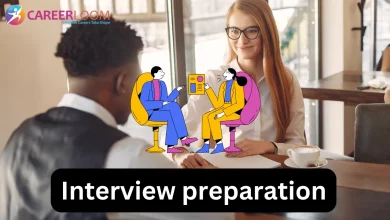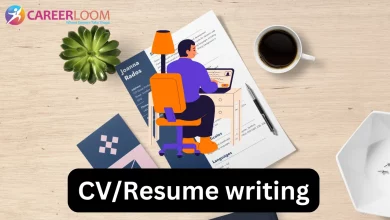Effective Job Hunting Techniques: Finding the Right Opportunities

If you’ve ever been on the job hunt, you know that it can feel a bit like navigating a maze with no map—confusing, overwhelming, and at times, downright frustrating. You’re sending out applications, perfecting your resume, and staying up all night preparing for interviews, but you still can’t seem to land that dream job. Sound familiar?
You’re not alone. The modern job market has become more competitive than ever, but the good news is that there are specific strategies that can make your search much more effective and efficient. In this article, we’ll walk through the best techniques for finding the right job opportunities, starting with the essentials that will give you the edge you need.
Job hunting is more than just applying to every open position you find; it’s about being strategic, understanding your strengths, and positioning yourself in the right place at the right time. With the right techniques, you can dramatically improve your chances of finding a job that’s not just another gig, but a meaningful opportunity that fits your skills, values, and long-term goals.
Why Is Effective Job Hunting Important?
Job hunting isn’t just about filling out applications and hoping for the best—it’s about targeting positions that align with your experience, aspirations, and lifestyle. Effective job hunting techniques can help you focus on quality rather than quantity, leading to more fruitful interviews and job offers that actually meet your needs.
A well-planned job search can also save you time and reduce unnecessary stress. Instead of blindly applying to hundreds of positions, you’ll be able to streamline your approach and identify opportunities that are worth your effort.
Let’s break it down a bit more. If you were to take a scattershot approach and apply to every single job you found, you’d probably end up feeling burnt out without seeing much progress. However, with a focused strategy—such as tailoring your resume for each position or leveraging your network to discover hidden opportunities—you can maximize your time and effort, and ultimately, your chances of success.
How Do You Start a Job Search?
Starting a job search can be one of the hardest parts of the process. With so many possibilities out there, where do you even begin? The key is to start with a plan. First, assess where you are in your career and where you want to go. Are you looking to grow in your current field, or are you considering a career change? Knowing your goals is the first step in narrowing down your search and finding the right fit.
Here are some basic starting points for getting organized:
- Clarify your career goals: This will help guide your search. What are you passionate about? What skills do you want to use? Do you want to work for a large corporation or a smaller, more intimate company?
- Update your resume and LinkedIn profile: Ensure both reflect your current skills, experiences, and career objectives. Be specific about your accomplishments and the value you can bring to a company.
- Create a job search schedule: Devote a certain amount of time each day or week to your search. Stay disciplined to avoid burnout and ensure consistent progress.
A well-planned search is a more efficient one. By setting clear intentions from the start, you can focus on the right jobs rather than casting a wide net.
Where Can You Find Job Opportunities?
When it comes to finding job opportunities, many people think of the usual suspects—online job boards like LinkedIn, Indeed, or Glassdoor. But these aren’t the only places to search. Expanding your horizons can significantly improve your chances of discovering hidden gems that aren’t listed on popular job sites.
While platforms like LinkedIn and Indeed are essential, don’t forget about:
- Industry-specific job boards: Many fields have niche job boards dedicated to specific industries—whether it’s tech, healthcare, or marketing. These can often offer more targeted, specialized opportunities.
- Networking: One of the best ways to find opportunities is through personal connections. Reach out to friends, colleagues, and industry peers. Many positions are filled through referrals, sometimes before they’re even posted publicly.
- Company Websites: If there are companies you admire or dream of working for, check their careers pages regularly. Many organizations post jobs directly on their site before listing them elsewhere.
Remember: job hunting isn’t just about applying for positions; it’s about casting your net wide and building meaningful connections.
How Do You Improve Your Resume for Job Hunting?
Your resume is often the first impression you make on a potential employer, so it’s important to make it count. It’s tempting to throw all your past experience into a document and call it a day, but a targeted, well-crafted resume will always stand out more.
Here are some quick tips to improve your resume:
- Tailor it for each job: Customize your resume for each role you apply to. Highlight relevant skills and experiences that align with the job description. For example, if you’re applying for a marketing position, make sure to emphasize your experience with social media, content creation, or campaign management.
- Use keywords from the job description: Many companies use automated systems (ATS) to screen resumes. Using the same keywords from the job posting helps ensure that your resume makes it past the first hurdle.
- Focus on accomplishments, not duties: Instead of listing your job responsibilities, focus on what you’ve accomplished. For example, instead of saying, “Responsible for managing social media,” say, “Increased social media engagement by 40% over six months.”
By sharpening your resume with these techniques, you’re not just listing your work history; you’re showcasing the value you can bring to a new employer.
What Should You Do to Prepare for an Interview?
Interviews can be the most nerve-wracking part of the job hunt. But with the right preparation, you can walk into that room (or Zoom call) feeling confident and ready to impress.
Here are a few preparation tips that can give you a leg up:
- Research the company: Learn about the company’s mission, culture, and recent developments. This shows you’re invested and have done your homework.
- Prepare answers to common interview questions: Practice responding to standard questions like “Tell me about yourself,” “What are your strengths and weaknesses?” and “Why do you want to work here?” You don’t want to sound rehearsed, but having a general idea of your responses can help reduce anxiety.
- Prepare questions to ask the interviewer: This shows that you’re engaged and genuinely interested in the company. Ask about company culture, growth opportunities, or what success looks like in the role you’re applying for.
- Dress appropriately: Even if the company has a casual dress code, dressing a little more formally for the interview can help make a great first impression.
Ultimately, interview preparation is about demonstrating your skills, experience, and enthusiasm in a way that matches the company’s needs.
How Do You Follow Up After an Interview?
Following up after an interview can be a delicate balance. You want to express your continued interest in the role without seeming desperate or overbearing.
- Send a thank-you email: Send a brief thank-you note within 24 hours of your interview. Be polite, express appreciation for the opportunity, and reiterate your enthusiasm for the position.
- Reaffirm your fit: In your follow-up message, highlight why you’re the ideal candidate for the role. Reference specific points discussed during the interview that show you’re aligned with the company’s needs.
- Be patient, but persistent: If you don’t hear back right away, it’s okay to follow up after a week or two. Politely ask for an update on the hiring process.
A well-timed follow-up can help keep you top of mind and demonstrate your professionalism.
Conclusion
Finding the right job opportunity is no small task, but by applying effective job hunting techniques, you can greatly increase your chances of success. Start by setting clear goals, building a strategy, and making use of all available resources, from online platforms to personal connections. A well-crafted resume, thorough interview preparation, and respectful follow-up can also make a world of difference.
Remember, job hunting isn’t just about landing any job—it’s about finding the right job, one that will bring you both professional fulfillment and personal satisfaction. So don’t be discouraged by setbacks or rejections. Stay focused, stay positive, and keep refining your strategy. The right opportunity is out there waiting for you.
And who knows? Your dream job might be just one application, one interview, or one networking conversation away. Good luck!


